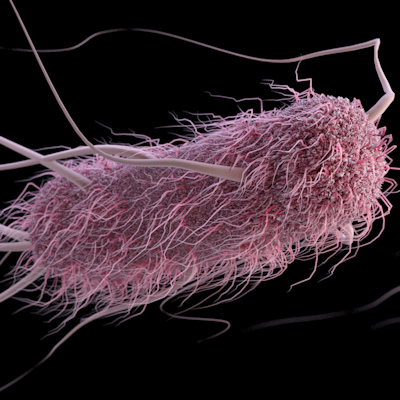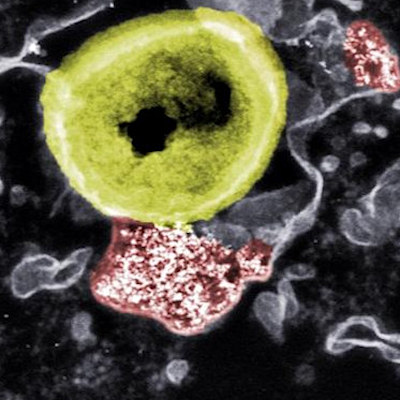November 7, 2022 -- An anti-herpes drug discovered in the 1960s weakens the protective surface of an antibiotic-resistant bacteria and makes it easier for the immune cells to eliminate the bacteria, researchers from Switzerland found.
The University of Geneva (UNIGE) scientists discovered edoxudine can fight off Klebsiella pneumoniae, a bacteria that is common in hospitals and causes many respiratory, intestinal, and urinary tract infections (PLOS One, October 31, 2022). Some of its strains can be fatal for 40% to 50% of infected people because of its virulence.
The UNIGE researchers used an experimental model involving the amoeba Dictyostelium. This single-celled organism feeds on bacteria by capturing and ingesting them, which is the same mechanism immune cells use to kill pathogens. The team genetically modified the amoeba so it could identify whether the bacteria it encountered were virulent or not, and tested thousands of molecules to spot those that reduced bacterial virulence.
The scientists evaluated the effect hundreds of drugs currently on the market had on Klebsiella pneumoniae. They found that edoxudine alters the surface layer that protects the bacteria from its external environment; unlike an antibiotic, it does not kill the bacteria.
This means it is less likely that Klebsiella pneumoniae will develop a resistance to the anti-herpes drug. However, more research is needed to ensure the treatment's effectiveness in humans.
Copyright © 2022 scienceboard.net











